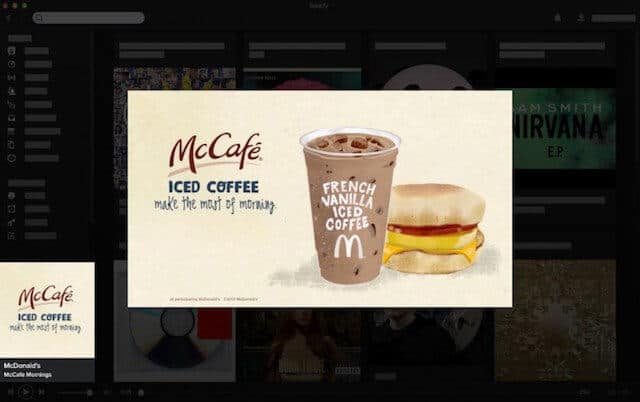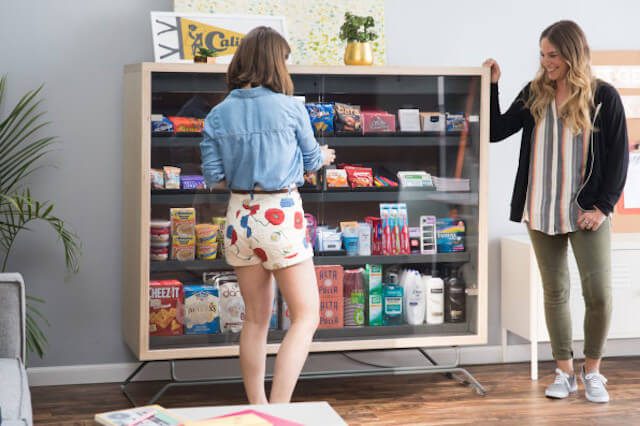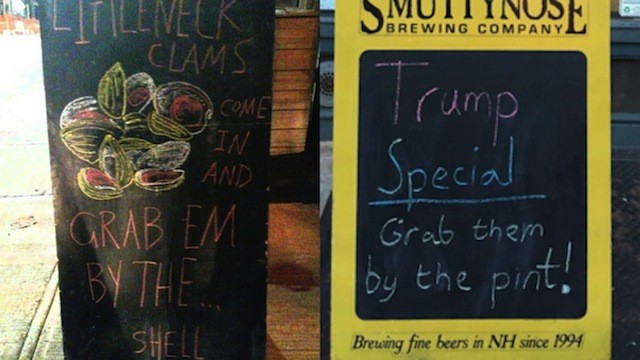
The major positive societal milestones I have witnessed in my lifetime include the legalization of gay marriage, the relaxation of marijuana laws and the elimination of that shrill alarm on the subway emergency exit door. Farther down that list of accomplishments, but still impressive, is the successful campaign to hunt down and eradicate commercials, the bed bugs of entertainment, from all aspects of our lives. Those persistent pests used to do everything they can to hijack a ride into our lives and feast on our mental health with their horrible repetitiveness and push for you to buy buy buy.
Commercials are everywhere, but we’ve done a lot to fight them. We’ve cut cords and created DVR technology, launched streaming services and built ad blockers. Taxi TV, the irl pop-up ad, is on its way out. I have been to sports bars in Brooklyn that dutifully turn down the TVs and fire up the music during every commercial break lest their clientele burst out the door with the urge to buy a Ford. This is a social good: You can only hear Thomas Middleditch trying to sell you Verizon products so many times before you tear out your eyes out on Facebook Live.
There is one holdout in the war against commercials, and it’s time to call them out: bars, restaurants, shops and any other business in NYC that refuses to buy Spotify premium or something similar, unleashing bloodsucking commercials on its customers. It flings us back to the bad ol’ days of FM radio before the world knew better, when we were at the whim of corporate radio and 40 spins of Lifehouse’s “Hanging By A Moment” in an afternoon. Guys, it’s time for this to end.
If you run a business in New York City in 2017, especially one that encourages long, languorous lingering, it is simply bad business to have commercials playing over your loudspeaker because you are using the free version of a music app. Pay for the dang premium version already.
Please etch out some budget to pay for Spotify premium, or Pandora premium or Apple Music, or set up one of those pterodactyl record players from The Flintstones — anything to get those bed buggy commercials out of our ears in public space. They are a jarring, attention grabbing nuisance that tramples all over rare moments of calm in this city. Streaming music ads happen to be particularly painful, as they’re often just ads for the premium service itself, adding extra shame as customers hear the commercials ask questions like “want to never hear ads like this again? Sign up for premium now!”
The cost of doing so is so minuscule it’s amazing this is even an issue: Spotify premium costs $10 a month for access to a ridiculous quantity of the world’s music; Pandora (if for some reason you still use that) costs the same. You can spare the investment to have one house account for the whole shop, or if you must, put out a tip jar or launch a crowdfunding campaign to cover the costs. Yes, there are greater injustices going on in the world right now, but this is all the more reason to defend our mental health and peace wherever we can find it.
This happens surprisingly often in Brooklyn — even in bars – bars! —the holy places that are supposed to be our sanctums from the noise of the rest of the world, where you can sink into a pint or a book or a game of pool without someone trying to convince you to buy a McDonald’s iced coffee every few minutes. Being in those bars reminds me of the wretched FM radio routine of my youth, driving around in the car listening to 95.9 the RAT as two insufferable radio voices trying to talk “casually” about the President’s Day sale at Pine Belt Chevrolet. Only 90s kids will remember being driven insane by 10 minutes of ads in between two minutes of Mandatory Metallica.
But there’s a higher reason to pay for a premium account and evaporate commercials from your business: they’re taking advantage of you. Commercials work by using what’s known as affective conditioning, which makes you associate, say, the sounds of summer with a particular lemonade brand or images of soft towels with a detergent. It’s basically putting something advertisers want you to like next to something you already like.
“[A]ffective conditioning is most effective when you don’t realize that it is happening,” Psychology Today wrote of this topic in 2010, “That is, trying to pay less attention to the ads you see on TV and in magazines may actually make this type of advertising more effective.”
So letting commercials play out in your bar means you’re letting advertisers hijack the vibe and ambiance to do some affective conditioning toward their products, which does not benefit you in any way. And all you’re getting for it is a few minutes of music at a time. The mental strain of having ads jut into your space between sips of coffee or snips of the scissors can turn to anguish. The bed bugs are burrowing into our brains.
________
If you’ll follow me on a brief but related aside about the effects of obnoxious advertising in a public space, strap on your safety harness and journey back with me to the mid ’90s in Jackson, New Jersey. As a kid, I used to go to Great Adventure a lot. One season, when I was maybe 13, the family got season passes and we went more than enough times to make the purchase worth it. It wasn’t by any means an extravagance, but it was a rare splurge my mom and dad allowed themselves when bigger vacations somewhere tropical, international or far away were nowhere in our budget.
I used to think of Great Adventure as a sort of off-brand Disney World: Not quite as magical and imaginative, but certainly full of enough costumed characters and themed areas to be a solid, cheaper stand in, with way more thrilling rides. The lines for the big rides had TVs that showed Looney Tunes and music videos (and yes, the occasional ad).
When I went back as an adult about four years ago around age 30, the rides were still there, but in between them, every inch of the park had been slathered with advertising, from the lampposts lining the lake that now hawked Coca-Cola to the walkways leading up to the Great American Scream Machine that were paved with ads for Snickers. The TVs didn’t show cartoons any more: Now they were nearly all commercials, the volume ramped up to an impossibly loud level to truly grab your attention. My friends and I had to pause our conversation until the ad for Grown Ups 2 died down. It would roar back to life a few minutes later. And then again a few minutes later. And then again.
The worst part was the poor, summer-job kids who were operating the rides, who had been turned into product shills too. They would issue their safety instructions over the loudspeaker and then punctuate the reminder to keep your hands in the vehicle with an invitation to get an icy Coca-Cola afterwards. The pitch was fired off so dispassionately you could tell it had been said hundreds of times over the course of the day. They looked miserable saying it; the people on line offered them visible pity.
Your coffee shop or bar or restaurant isn’t Great Adventure, and it’s certainly not Disney World. But in the claustrophobic confines of New York City, it should be a place where customers can expect to find some respite from the repetitive screeches of consumerism (at least, the ones outside your own business) for a few minutes. We have the technology, we have the power, all you need to do is embrace it.
Treat yourself and your customers to the dang $10 subscription fee. Bed bugs are much more difficult and expensive to eradicate, but commercials are one thing we can banish from this earth for good.
Follow Tim, who is still old man Brokelyning away on Twitter: @timdonnelly.
4 Comments
Leave a Reply



private businesses aren’t “public spaces” and Grown Ups 2 was great.
yawn
Was at a restaurant on the other side of the vb playing the freebie version of Pandora. Yes I agree it is most unprofessional and did ruin an otherwise enjoyable evening. I get trying to save a few bucks but not at the expense of the experience.
Your point is valid, especially since two drinks in a city bar ought to cover the monthly expenses of a subscription, but the fact that you recommend Spotify and horrifyingly Apple Music… over Google Play Music leads me to believe this is a sponsored ad…
Pandora and GPM are the only services with properly/expertly curated stations. Due diligence please…